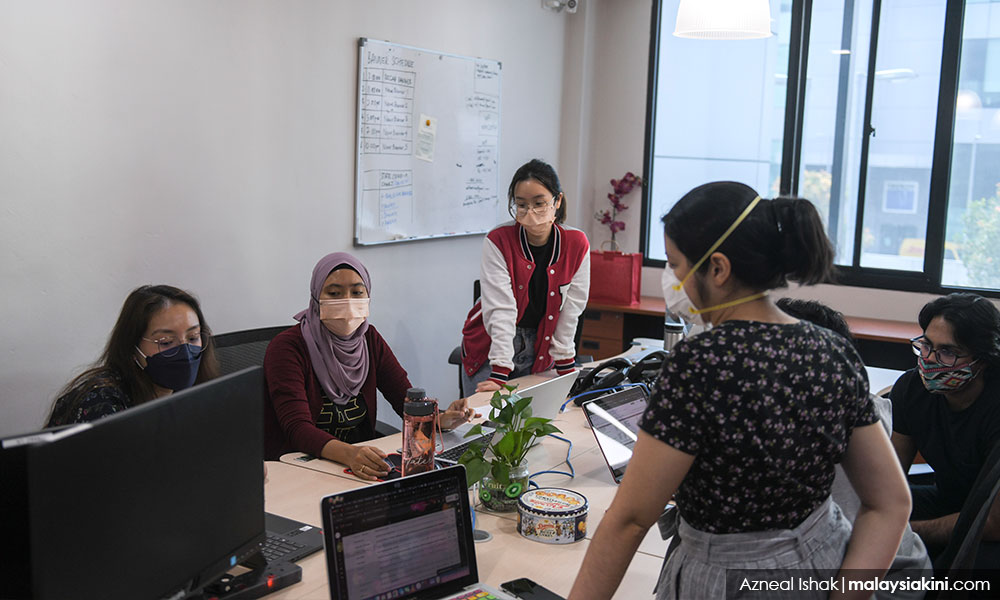The Human Resource Development Fund (HRDF) has been a significant reservoir of resources to enhance the skills and competencies of the Malaysian workforce.
Despite its noble intent, recent observations and reports have highlighted several concerns regarding the utilisation and management of these funds, particularly in the banking sector.
Unused funds, employer levies
HRDF has amassed substantial funds, yet a significant portion remains underutilised for the intended purposes.
For employers with more than 10 Malaysian employees, the employer has to register for HRDF and pay one percent of the monthly wages of employees across various sectors, including banking.
In 2023, HRDF collected RM2.2 billion but only expended RM1.8 billion on training programmes.
There is uncertainty about whether the RM1.8 billion spent on training is fully utilised for employer-facilitated training or government-conducted training for government projects.

It is unclear if the government mandates employers to send employees for training as strictly as it enforces the levy upon employers.
Without stringent rules, the purpose of HRDF is undermined.
Refusal to entertain union recommendations
Employers, especially in the banking sector, who started paying the levy in 2022, are not fully utilising HRDC programmes for B40 and M40 employees.
When the National Union of Bank Employees (Nube) realised that the bank management was not providing adequate training for its members, we decided to initiate the HRDC training programmes.
In the previous year, the bank management reluctantly approved the programmes.
However, when Nube recently facilitated its first occupational safety and health training, the bank management informed the union that funding and facilitation discretion lies with them and insisted it is their prerogative, and refused to allow Nube to continue facilitating HRDC programmes.
Employers have refused to send lower-rank employees for training and are unhappy when the union facilitates these efforts, claiming it is solely their responsibility.
Employers have argued they have the sole right to decide how the levy funds are spent since they are the ones paying it.
Joint responsibility for training
Employers cannot decide on training needs without involving workers’ representatives through Nube for HRDC programmes.
Workers prioritise being equipped with appropriate knowledge and skills to improve performance, productivity, and working conditions.

Training responsibilities lie with both the management of the banks and Nube. The training programme’s needs, delivery, and evaluation should be conducted together.
The funds remitted to HRDF are not solely at the discretion of management since these funds are from the profits generated by both employers and employees. Even the CEO’s wages are deducted for the levy.
If CEOs can decide on their training, the union, representing its members who are also bank employees, should have a say in training decisions. Providing training for unionised workers is not the birthright of the management.
In the banking sector, management creates quotas similar to university admission quotas, favouring management staff over lower-rank staff.
Call for govt action
These issues are occurring under the government’s watch and are being conveniently ignored.
Upskilling and reskilling should enhance business performance and competitiveness, not serve as a money-making scheme or a platform for those in power.

Authorities should genuinely investigate to meet HRDF’s objectives, not just use audit reports to shift funds around. Transparency is crucial as many workers are not benefiting from the fund, and the income gap is widening.
Nube strongly disagrees with giving employers the right to appoint HRDF CEOs as they have failed in their duties. If they had carried out their roles responsibly, there would not be discrepancies, and employees would receive the training they deserve.
The increase in foreign workers taking over roles, including top management, is evident.
Equal benefits
We call for immediate and transparent action to ensure all employees benefit equally from HRDF training programmes. The only solution is for unions to be granted equal rights as employers to determine training programmes for employees.
A tripartite control of the HRDF, via the government, employers and the unions, is the only feasible, practical and reasonable way to ensure that the HRDF is fully utilised for the benefit of the employees and is not misused or squandered. - Mkini
J SOLOMON is the general secretary of the National Union of Bank Employees (Nube).
The views expressed here are those of the author/contributor and do not necessarily represent the views of MMKtT.



No comments:
Post a Comment
Note: Only a member of this blog may post a comment.